Convenient "Psi-ence Denialism"
Why reality avoidance suits many scientists when it comes to psi phenomena
Thanks for reading! Here are some other ways I can support you ⤵️
⚠️ With the life-changing and consciousness-expanding ➡️ EVOLVE YOURSELF biofield and consciousness “DNA activations” ⬅️ Learn more and find a huge discount on Evolve Yourself package offers HERE
Through my first book, THE GRAND ILLUSION: A SYNTHESIS OF SCIENCE & SPIRITUALITY - Book 1 📕 - 10,000 hours of research in 1 book
✨ Get EVERYTHING I do: Join ‘The Truthiversity - The #1 consciousness-raising university’ for all premium content (including audio versions and full podcasts - with member Q&As) for the price of barely three coffees a month! ☕️ (It’s better for your health).
With a paid subscription here to get FULL Substack access (includes 🎧 all audio versions + commenting) - SPECIAL 20% DISCOUNT OFFER BELOW
CONVENIENT DENIALISM
A lot of shills out there loudly trumpet the “problem” of so-called “science denialism” when it suits them and their agenda—often, for instance, pushing the pseudoscience and fake history supporting quackseens or any number of other unnecessary medical sacred cows, for instance. (And let’s not forget the pure scientific horse manure behind “global warming/climate change”).
Loaded language is one of their favourite means to try to discredit someone saying things that make them feel “yucky”… (grin)
…instead of actually having to address the relevant data like a grownup.
But there is one very important arena of scientific endeavour (genuine science!) where many so-called “sceptics” still inhabit Denial-landia, and use their scientific credentials—or those of others—to preserve entrenched biases against ideas that make them uncomfortable:
Parapsychology (and its forebear “psychical research”). This field examines “psi,” AKA, psychic abilities, as well as so-called “paranormal phenomena” (but who defines what is “normal” versus “paranormal” anyway?).
LETTING EMOTION STEER THE SHIP (AT THE ICEBERG)
Like lay people, scientists themselves frequently fall prey to emotions and attitudinal biases. The image of the detached, indifferent and “objective” scientist just earnestly doing his research for the good of mankind, without need of thanks or reward is largely a fiction that has little place in the “real world.”
The days of pure exploratory science for the sake of understanding how reality works—done by the likes of Copernicus, Kepler, Newton, Crookes, Faraday, or others of their ilk—are long since over.
Now the corporations run things—for the benefit of stakeholders (not truth).
Independent researcher R. Webster Kehr has said, “Not only is Big Business corrupting modern day physics, but pride and prestige would be corrupting physics even if Big Business didn't exist.”
Even when money or politics don’t pressure a scientist, he or she may well still fall prey to unconscious prejudices induced by childhood conditioning, emotional experiences from adult life, or any variety of events, that will skew the results of their research, perceptions, or commentary on a given topic.
As physicist, Brian D. Josephson points out,
“Some scientists are especially prone to whip up emotion ‘in the cause of science’ (or so they believe).”1
When was the last time that emotion helped you reach a rational and impartial conclusion? (*cough*Leftists*cough*)
And this is to say nothing of pseudosceptic entertainers like the “Amazing” James Randi—who never say or do anything useful regarding these subjects, despite the amount of noise they generate (most of the noise consisting of half-truths and outright lies).
Pioneering parapsychology researcher Dean Radin is similarly candid:
...it seems that scientific truth, at least for controversial topics, is not determined as much by experiment, or replication, or any other method listed in the textbooks, as by purely nonscientific factors. These include rhetoric, ad hominem attack, institutional politics, and battles over limited funding. In short, scientists are human. Assuming that scientists act rationally when faced with intellectual or economic pressures is a mistake.2 (Emphasis added)
In fact, and pertinent to our thesis in Book 1, Radin adds that the “scientific elite” are “motivated not to see psi.”3
Significant scientific publications—for example, the journal Nature—are not exempt from this tendency towards bias. Indeed, Nature itself has a well documented history of prejudice against various scientific findings that run contrary to established “scientific” dogma. (I have documented the malfeasance of entities like Nature in my presentation IS SCIENCE BROKEN?)
Case in point:
In a 1997 issue, the journal published an article that was highly critical of Radin’s book The Conscious Universe. In the article were factual mistakes that misrepresented his work, thus misleading the reading public and creating a false impression of Radin’s material, which was inimical to the overall endeavour of science, parapsychology and paranormal research. Unreasonable claims and insinuations were also made in an irresponsible manner unworthy of a truly scientific publication.
Initally, the journal even refused to publish a rebuttal from Radin of the criticisms of his work, and some seven months later, what was referred to as a “grossly inadequate correction” was published.
However, some ten months later, the journal did get around to belatedly publishing Radin’s rebuttal—apparently, partly due to considerable complaints being received over the matter.4
The literature detailing the struggles of scientists and researchers to get their material heard and faithfully represented when it confirms established dogma and commonly held assumptions is seemingly non-existent. (How odd!)
In other words, there’s a systemic confirmation bias in play.
There is a clear and distinctly unscientific prejudice within the scientific establishment against “uncomfortable” data being published for the reading public’s perusal.
Indeed, when Radin’s rebuttal was finally published in Nature, the closing remark “I hope this note motivates readers to study the evidence for themselves” was curiously omitted.5
Apparently this is too radical of a suggestion for many scientists and laypersons to bear. Thank goodness for censorship protecting our puny minds from the threat of curiosity and novelty. Heaven forbid we should find something out for ourselves, and not through the Establishment-approved and hallowed channels of “scientific authority.”
Some scientists and commentators on the paranormal and parapsychology have well documented histories of bias and even downright dishonesty and corruption.
Some who have been held in the highest esteem in the public’s mind have actually been consenting disinformation agents, deliberately injecting inaccurate data into the mainstream information flow, so as to mislead a gullible laity that simply takes a scientist’s word for something because, “They are a scientist after all.” (This appears to be a lessening trend, thankfully.)
I will not single out such individuals here.
Suffice it to make these observations now, so that, at least if the reader is made truly uncomfortable by my material, or even irate, by it, he or she will then know that my writing is not for them (if that’s you, feel free to wander back into your preferred Fairy Land where only “matter” is real, or where injecting heavy metals into children is “gold standard” preventative medicine, or where cow farts have apparently caused the seas to boil, or where “viruses” are real, or where you can see the sun after it sets just by zooming in a bit more, or where those parallel lines in the sky are all just contrails).
Having cherished beliefs and assumptions challenged is never fun for anyone, but if you are so fanatical in these beliefs you actually find yourself fuming at the mere suggestion of these things, your mind has been hijacked by a meme virus.
You’ve lost balance and become egoically invested.
“The tendency to adopt a fixed set of beliefs”, writes Dean Radin, “and defend them to the death is incompatible with science, which is essentially a loose confederation of evolving theories in many domains. Unfortunately this tendency has driven some scientists to continue to defend outmoded, inaccurate worldviews. The tendency is also seen in the behaviour of belligerent skeptics who loudly proclaim that widespread belief in psi reflects a decline in the public’s critical thinking ability.”6
I demonstrate in my first 2 books that the increasing belief in psi and the “paranormal” in general, actually reflects just the opposite trend, but more to the point; it also represents a fundamental evolutionary trend towards the greater advancement of the human race. Put simply we are awakening from our three-centuries-long materialist torpor.
We are increasingly willing, it seems, to confront “reality” on its own terms, and not as intellectual-emotional pygmies too insecure within ourselves to “get real.”
Parapsychology and “paranormal phenomena” have a place in an ontology expanded beyond the naive bounds of philosophical materialism (and its offshoots).
In the introduction to his superb book, The Holographic Universe, the late physicist, Michael Talbot, remembered;
I first learned [that science is not prejudice free]…when I asked a well-known physicist what he thought about a particular parapsychological experiment. The physicist (who had a reputation for being skeptical of the paranormal) looked at me and with great authority said the results revealed “no evidence of any psychic functioning whatsoever.”
I had not yet seen the results, but because I respected the physicist's intelligence and reputation, I accepted his judgment without question. Later when I examined the results for myself, I was stunned to discover the experiment had produced very striking evidence of psychic ability. I realized then that even well-known scientists can possess biases and blind spots.7
There are various notable examples of such poor data treatment by dogmatic “sceptics” as well as “sceptical” scientists involved in research. Another example is a sceptical psychologist named Kennedy who tried to replicate J. B. Rhine’s work with ESP cards in the late 1930s. Kennedy’s design involved 204 subjects, and he described his results as “entirely negative.”
The actual results, in a series testing for telepathy, were POSITIVE with odds against chance of ten million to one.8
Unfortunately this is a situation that occurs often in the investigation of the “paranormal”.
INVITATION TO JOIN US LIVE ON NOVEMBER 14 ⤵️
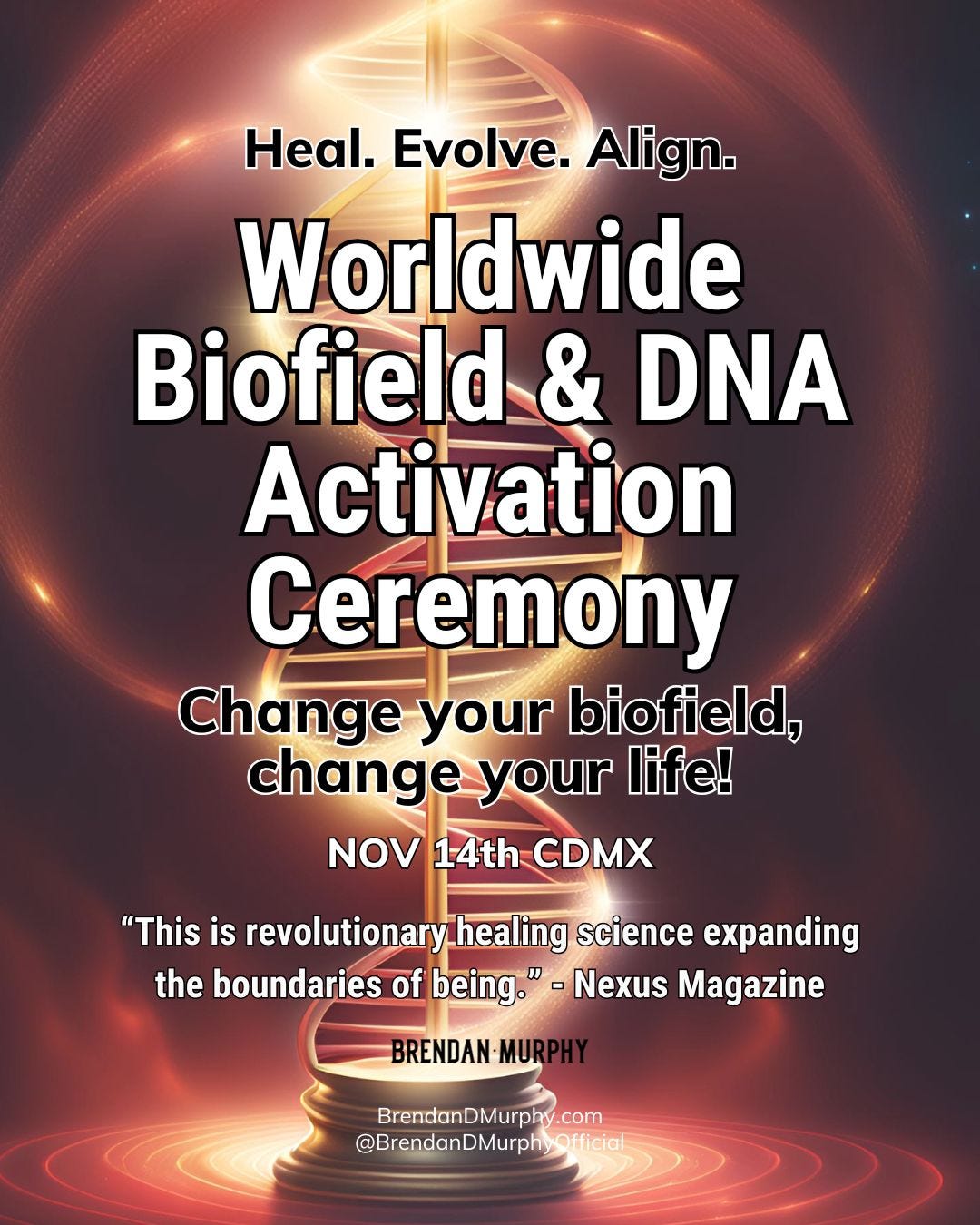
In an article appearing in the early 1990s in American Psychologist, Yale psychologist Irvin L. Child examined how a well-known series of ESP dream experiments conducted at the Maimonides Medical Center in Brooklyn, New York, had been treated by the scientific establishment.
Despite the dramatic evidence supportive of ESP uncovered by the experimenters, Child found their work had been almost completely ignored by the scientific community. Even more distressing was that in the handful of scientific publications that had bothered to comment on the experiments, he found the research had been “so severely distorted” its importance was completely obscured. Talbot reminds us that scientists “are only human and subject to the same religious, philosophical, and cultural prejudices as the rest of us.”9
Veteran parapsychologist, Stephen Braude (who kindly provided me with some images for Book 2), has written:
Since dipping into the data of parapsychology, I have encountered more examples of intellectual cowardice and dishonesty than I had previously thought possible. I have seen how prominent scholars marshal their considerable intellectual gifts and skills to avoid honest inquiry.
I have seen how intelligence can be as much a liability as a virtue, in particular, how it sometimes affords little more than complicated ways of making mistakes, entrenching people in views or opinions they are afraid to scrutinize or abandon. I have seen, in effect, how intelligence often expands, rather than limits, a person's repertoire of possible errors.10 (Emphasis added)
Popular Yale surgeon and author, Dr. Bernie S. Siegel, asserts that it is because people are addicted to their beliefs that we encounter these problems. Perhaps this is why so many of civilisation's greatest insights and advances have at first been greeted with such passionate “denialism.”
“We are addicted to our beliefs and we do act like addicts when someone tries to wrest from us the powerful opium of our dogmas. And since Western science has devoted several centuries to not believing in the paranormal, it is not going to surrender its addiction lightly”, wrote Talbot.11
Consciousness researcher Cleve Backster (who showed that plants react to human intention) submits that “the basic issue is fear of the unknown—a trait unworthy of scientists.”12
It appears to be a combination of factors miring some of us in a state of perpetual denial and (unnecessary) synthesised ignorance.
I’ve experienced many times the way people do react like addicts/zombies when their beliefs are challenged, even if politely enough (for better or worse, this seems to be part of my job description in this life). Rather than a mature, thoughtful response along the lines of “That’s interesting, how/where did you learn that?” many people will respond with a knee-jerk reaction that is sometimes even hostile, merely because you committed the thought-crime of having a different point of view.
They go into fight-flight/defence mode and act as if their entire world is under siege—“That’s not possible, science says so! What you’re talking about is pseudo-science!” (“Science” is not an entity that can “say” anything.)
Of course, such asinine pronouncements are invariably preceded (and followed) with precisely zero devoted, determined and open-minded research.
Most of these knee-jerk reactions are nothing more than that—emotional re-actions. Some people are all too happy to rehash all the hearsay and assumptions they have gathered and lived by throughout their lives, as if that constitutes a valid argument. It doesn’t, but it maintains the apparent safety of a limited weltbild.
Their opinions are almost always somebody else’s but they mistake these opinions as “axiomatic truth”, often by sheer force of the number of other people who happen to agree with them. (And yet truth is not determined by consensus, nor by our feelings.)
This is the functioning of people in the grip of unconsciousness.
The reason why we take interest in and attach so much importance to our opinions lies in the fact that we identify ourselves with our intellect. Our thoughts, opinions, prejudices and predilections are part of our mental possessions, children of our mind, and that is why we feel and show such undue and tender regard for them.13
There is a lot of face-saving done in Science Land; no one wants to be proved wrong—especially after publicly committing to a stance, such as all psi phenomena being “fraudulent”—but unfortunately many scientists get caught up in their own pet theories and opinions, mistaking them for the whole and absolute truth, refusing to make any concessions to new data.
Raymond Moody has written, “‘explanations’ are not just abstract intellectual systems. They are also in some respects projects of the egos of the persons who hold them. People become emotionally wedded, as it were, to the canons of scientific explanation which they devise or adopt.” 14
After dedicating a lifetime of research to an area, it would understandably be threatening to have your “facts” challenged, and yet, this is the response of the pride-filled ego, not of the analytical intellect. Science can only perform its role properly—that is, to apply the scientific method—when the ego is removed (or at least tempered) and replaced with an unprejudiced, impartial search for truth, whatever it turns out to be.
As it happens, materialists turned out to be dead wrong, and consciousness not only reaches beyond the skull, but—as the evidence tells us (if we look)—does not even need a “physical” structure to exist at all.
Parapsychology’s “revelatory” findings are just the beginning.
If you’re interested in these subjects, you will want to read BOOK 2 when it’s available—make sure you jump on the wait list—this is a monumental and unique study into afterlife-related subjects.
🚨 For full access to ALL of my premium multimedia content become a member of The Truthiversity ⤵️
FREE MASTERCLASS ON CUTTING-EDGE SOUND-HEALING AND PERSONAL EVOLUTION

This bad boy can be used on a plane, train, in a car—anywhere you can plug into a USB port.
You simply plug it in and it will immediately neutralise the noxious radio frequencies (electrosmog) saturating your environment, creating a protective bubble 8 metres in diameter (actually measured out to 12 metres, but 8 for absolute optimum)!
And, unlike many EMF-protection devices, you can see the effects. Using an RF detector, you can watch as the harmful radio frequencies and noise/electrosmog in your vicinity vanish before your eyes. 🤯
If your body could talk it would thank you for cutting out the constant UNNATURAL background agitation generated by electronic devices (not just wifi and mobile towers!) in the home, office, plane, or car.
We're constantly saturated by frequencies in the non-ionising radiation spectrum that create an undercurrent of agitation and stress, typically at a basic subliminal level.
The good news is, we don’t need to accept this anymore.
Check out our free presentation where we’ll show you the power, convenience, and peace of mind this incredible device brings to our lives.
If you missed the live Zoom event, click HERE to see the replay and be one of the first in the world to get your hands on one.
About Brendan
Brendan D. Murphy is the “consciousness guy” and author of the critically acclaimed epic, “The Grand Illusion: A Synthesis of Science and Spirituality — Book 1”
He’s also the founder of The Truthiversity, the #1 consciousness-raising university for awakening minds (Truthiversity.com), and facilitator of accelerated evolution inside his Evolve Yourself program (learn more at www.evolveyourself.live).
Get on the wait list for the astonishing Book 2 of “The Grand Illusion”
📲 Brendan’s Instagram and BitChute: @BrendanDMurphyOfficial
🧬 Watch the free How to Evolve Yourself (WITHOUT Hard Work or Meditation) Masterclass to learn about Brendan's evolutionary DNA activation and healing work with sound
💸 For information on how Brendan supports unconventional free-thinking people to stop trading time for money and live life on fire through the Freedom Hackers community check out the free training HERE
🔌 Protect Your Family From EMF: free webinar reveals amazing new portable tech
Brian Josephson, Pathological Disbelief, Lecture given at the Nobel Laureates’ meeting Lindau, June 30th., 2004.)
Radin, The Conscious Universe, 262.
Ibid., 275.
See Unfounded criticism of a parapsychology book in Nature, http://www.tcm.phy.cam.ac.uk/~bdj10/psi/doubtsregood.html.
Ibid.
See Radin, The Conscious Universe, Introduction.
Talbot, The Holographic Universe, 5-6.
Radin, The Conscious Universe, 40. See Radin, Ch.3 for further such examples by “sceptics” Susan Blackmore and Ray Hyman.
Talbot, 5-6.
Pride and Prejudice in Academia, http://www.skepticalinvestigations.org/anomalistics/prideandprejudice.htm
Talbot, 6-7.
Cleve Backster, Primary Perception, 126.
I. K. Taimni, The Science of Yoga, 134.
See Raymond Moody, Life After Life.





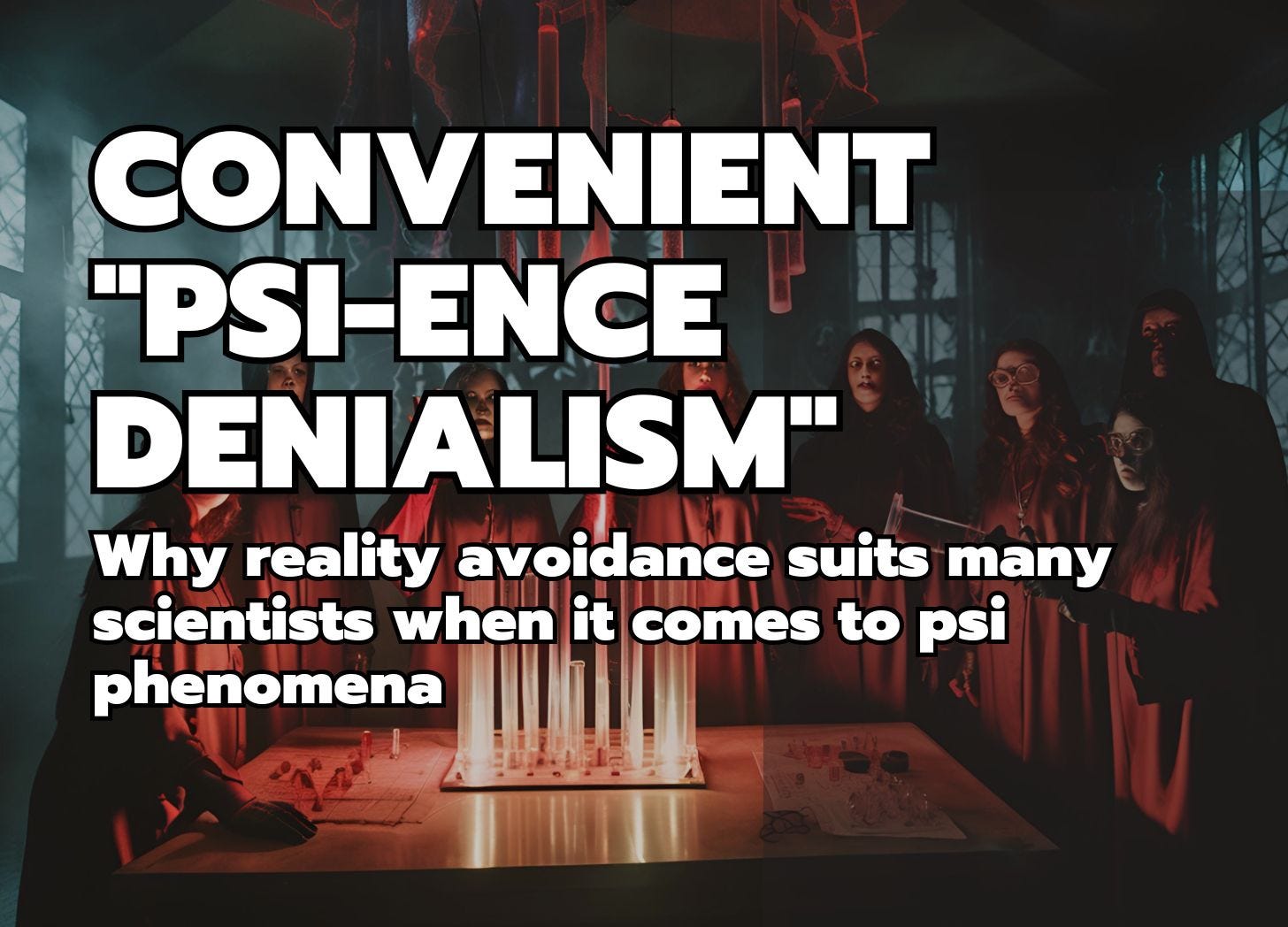
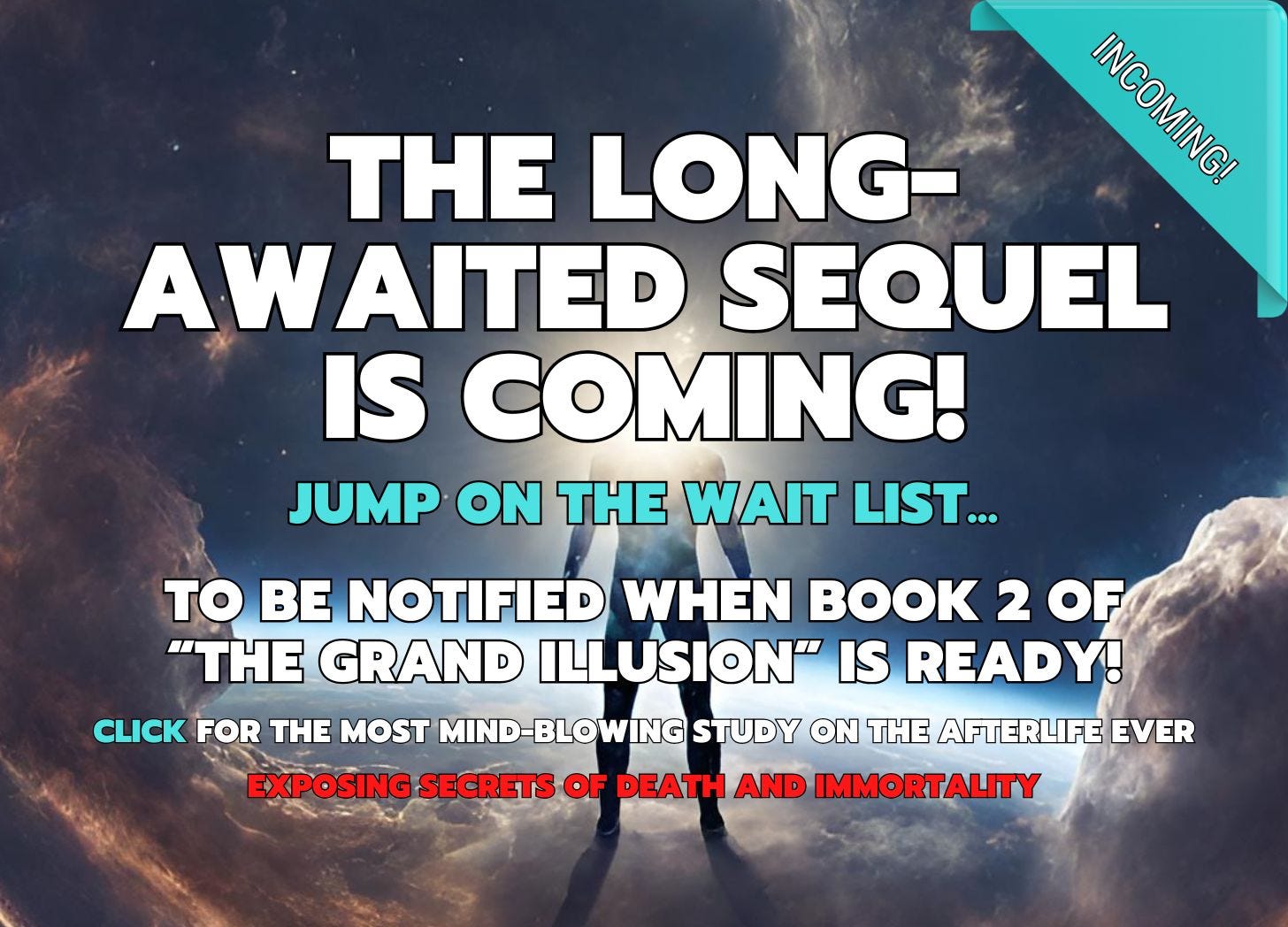
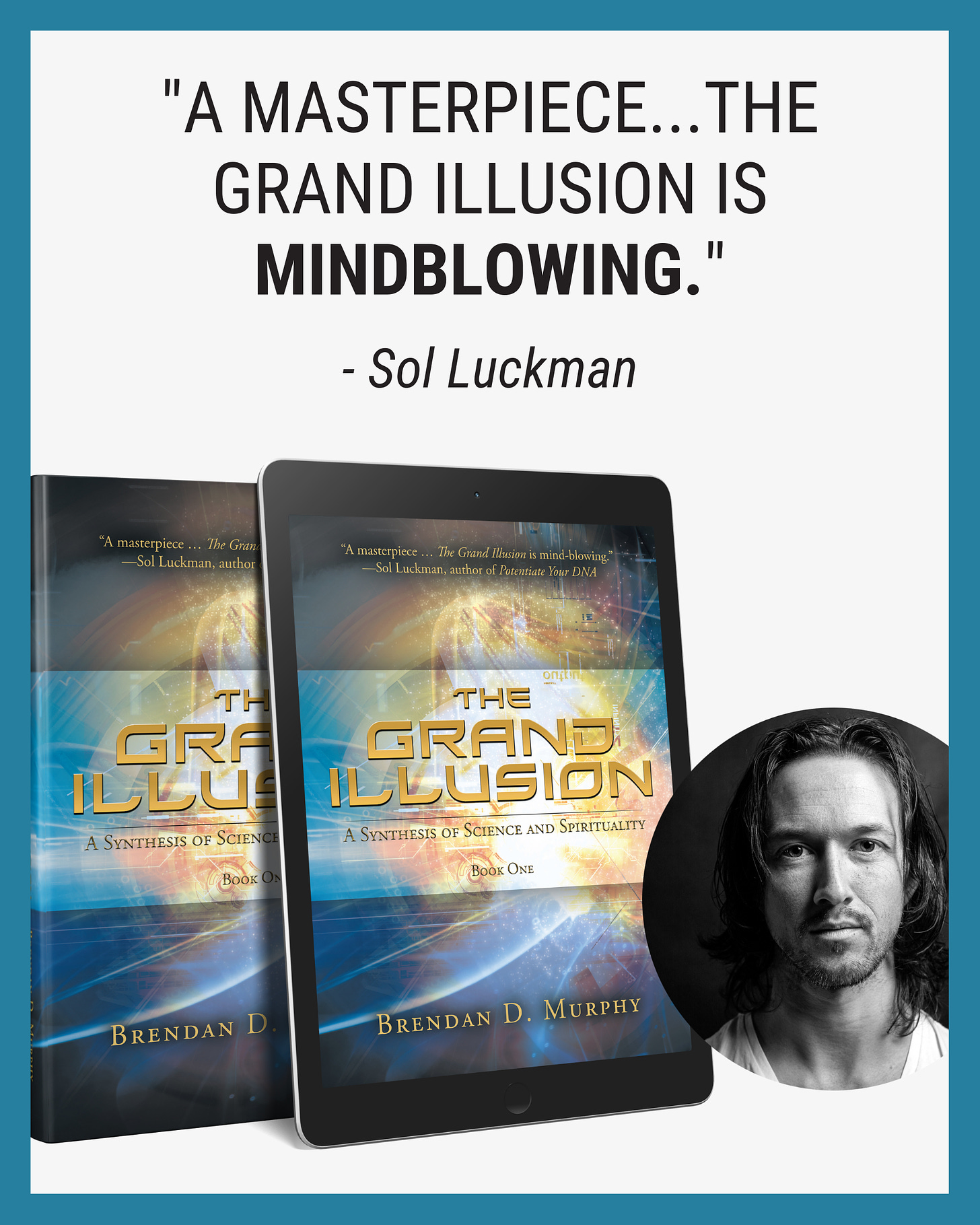
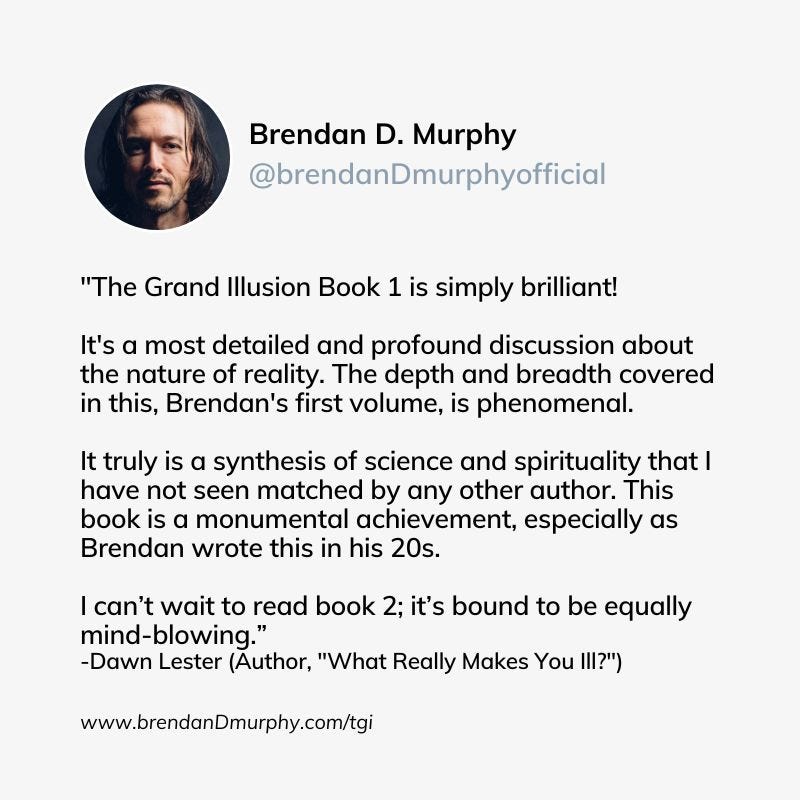

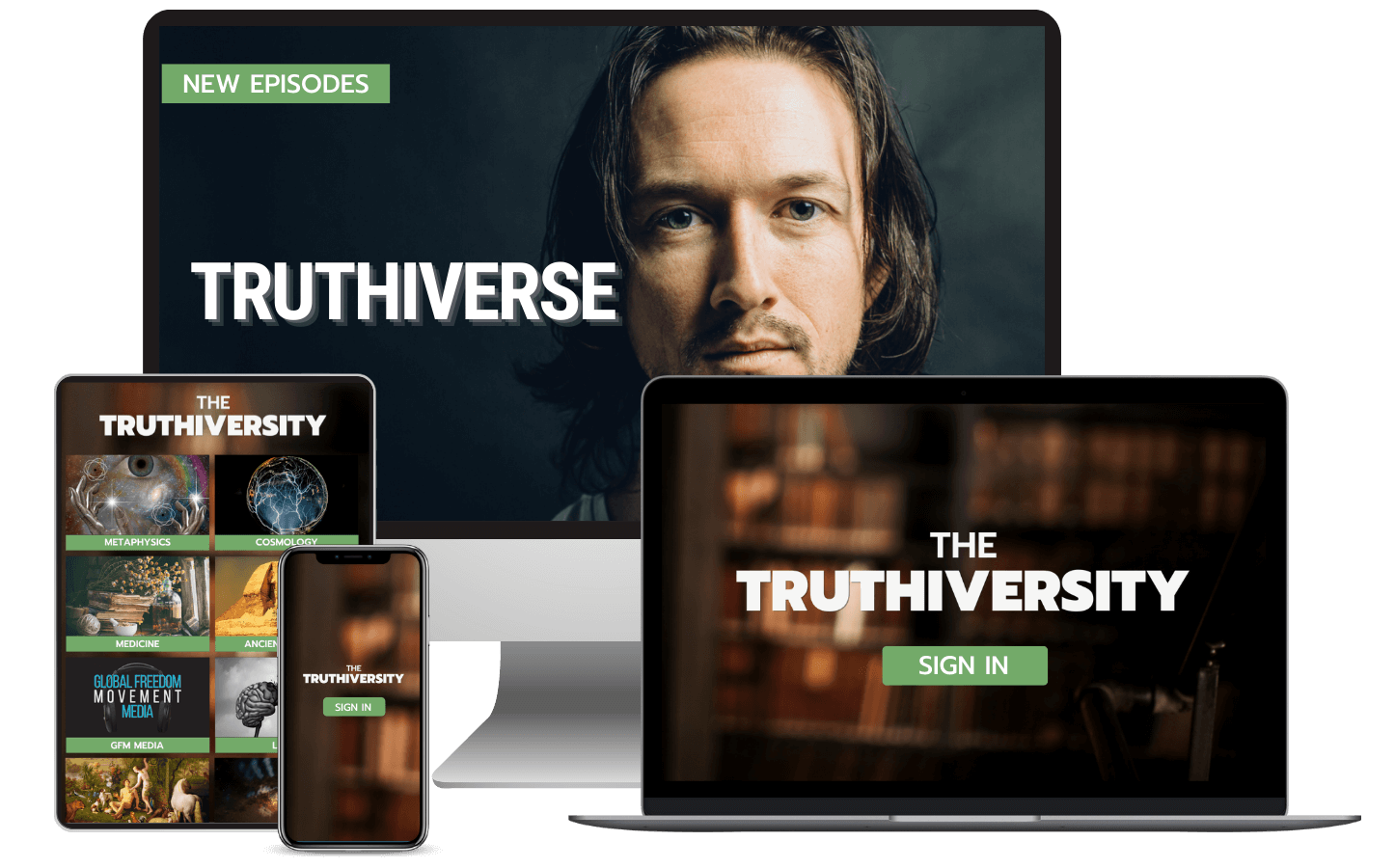
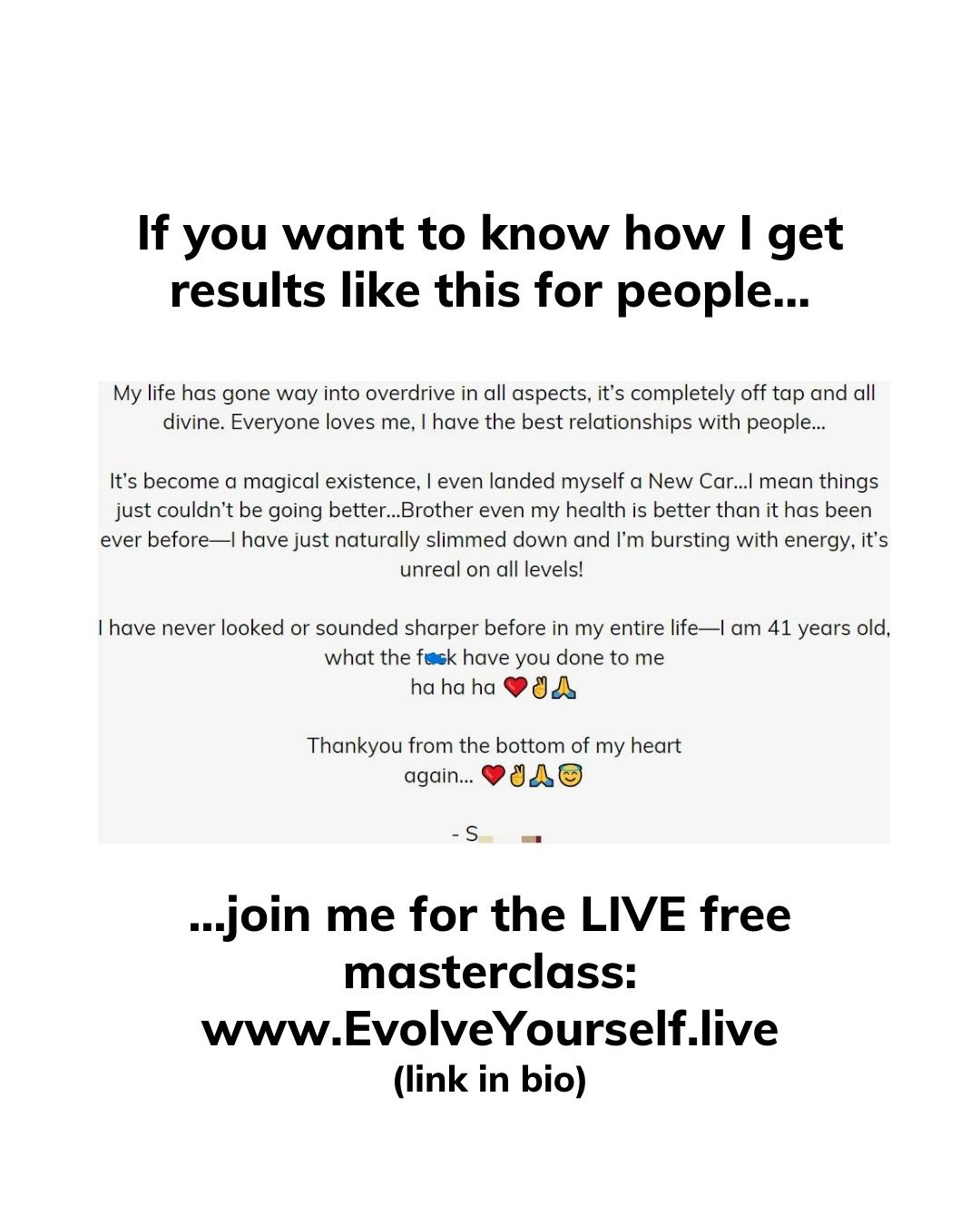

(if that’s you, feel free to wander back into your preferred Fairy Land where only “matter” is real, or where injecting heavy metals into children is “gold standard” preventative medicine, or where cow farts have apparently caused the seas to boil, or where “viruses” are real, or where you can see the sun after it sets just by zooming in a bit more, or where those parallel lines in the sky are all just contrails)
When I got there I subscribed. I mean, I usually expect to disagree with people on SOME of those things, but it was funny how I'm 100% with you on all those.
Feels validating, like I'm not going crazy.
I like how you make arguments sir. I'll give you a bit of a personal story that I think you'll appreciate regarding actual scientific thinking, and how anyone can apply it.
I had a medical condition for the first 30 years of my life. Everything every expert told me to do never worked. I was consigned to living with it.
Eventually, around 30 years old, my significant other at the time suffered some health crises and was in cardiac ICU for 10 days at one of the, considered to be, best hospitals in the US.
After 10 days, they not only did nothing to help her, they had no idea what had happened, the cause, anything.
Here, a lot of my faith in the medical community was lost. By stopping relying on the belief that they know everything, I was able to give myself permission to address my own health issue with my own mind.
To completely ignore conventional wisdom...and humbly surrender to the following:
"I am ready to completely surrender to the idea that there is no cure for my condition. But I can't just accept it as true. I CANNOT truthfully and fully surrender to this condition UNLESS I know if there is no cure. Which means, without hope of a cure, but in conviction to prove that I am uncurable, to finally put this to rest, I must ...try everything."
It didn't take long after that to cure myself. If you're really curious about what I cured, I'm happy to tell you through DM but, I'm reluctant to post it here because I don't want to give false hope (it's a really terrible and widely held problem). The solution to my situation was very unique to my situation.
All this to say... I never thought of myself as scientific. Quite the opposite. But when you take the mindset I did, you are taking the mindset of a truly scientific approach. You are proving by intentionally trying to disprove. I proved there was a cure by trying to disprove the existence of a cure.
I stopped listening to information and beliefs that felt good or true enough. I put reality to the test and let the results speak for themselves.
OK.. this comment is way too long.
Glad I found your substack, Brendan. Look forward to learning more from you.
Great post!